AI for HR
AI for HR – Smarter Recruitment & Workforce Optimization
Human Resources (HR) is evolving as organizations recognize technology’s critical role in managing talent effectively. Artificial Intelligence (AI) is at the forefront of this evolution, offering transformative solutions that streamline recruitment, optimize employee management, and enhance overall workplace satisfaction.
This comprehensive guide explores how AI reshapes HR, detailing its benefits, key applications, and future trends.
Understanding AI in Human Resources
AI is essential for HR professionals in today’s fast-changing work environment. By automating repetitive tasks and providing data-driven insights, AI helps HR departments make smarter decisions and foster a more engaged workforce.
What is Artificial Intelligence in HR?
Artificial Intelligence for HR refers to applying machine learning, natural language processing, and other AI technologies to automate and enhance various human resource functions. These functions include recruitment, performance management, employee engagement, and training.
AI systems can sift through vast data, predict hiring outcomes, and detect patterns that signal employee satisfaction or turnover risk.
The Importance of AI in HR
Integrating AI into HR processes saves time and enables more accurate, unbiased, and efficient decision-making. The benefits include:
- Faster Recruitment Processes: Streamlining candidate sourcing and screening.
- Enhanced Employee Engagement: Personalizing employee development and retention strategies.
- Optimized Administrative Operations: Automating routine HR tasks to free up time for strategic planning.
- Improved Data-Driven Decisions: Leveraging analytics to forecast workforce trends and address potential issues proactively.
Key Areas Where AI Transforms HR
AI is reshaping human resources by addressing core challenges and enhancing the employee lifecycle. Below, we explore the primary impact areas with introductory insights for each section.
Recruitment and Talent Acquisition
Modern recruitment is about speed, precision, and candidate fit. AI transforms the hiring process by automating repetitive tasks and providing deep insights into candidate potential.
Intelligent Candidate Sourcing and Screening
AI-powered platforms can sift through thousands of resumes, using predictive analytics and natural language processing to identify the best-fit candidates. This reduces the time spent on manual screening and ensures a more objective evaluation process.
Example: Many organizations now use AI tools that integrate with applicant tracking systems (ATS) to automatically rank candidates based on job requirements and historical hiring data.
Enhancing Interview Processes
AI can streamline scheduling and even conduct preliminary interviews through chatbots. Virtual assistants handle initial candidate queries and provide insights to HR professionals, ensuring that only the most promising candidates advance.
Example: AI-driven virtual interview platforms analyze candidate responses and body language, offering insights on candidate suitability before human intervention.
Employee Engagement and Performance Management
Effective employee engagement and performance management are crucial for organizational success. AI helps HR teams monitor employee sentiment and streamline performance evaluations to foster a more motivated workforce.
Real-Time Engagement Monitoring
Using AI analytics, HR can continuously gauge employee engagement levels by analyzing feedback, survey responses, and internal communication patterns. This proactive monitoring helps identify issues before they escalate.
Example: Tools integrating with platforms like Slack or Microsoft Teams can provide real-time sentiment analysis, alerting HR to potential disengagement or dissatisfaction.
Personalized Development and Performance Reviews
AI tailors employee development plans by analyzing performance data and identifying skill gaps. This ensures that each employee receives personalized training and feedback, leading to better career growth and higher retention rates.
Example: Performance management platforms that utilize AI can generate individualized learning paths and suggest targeted training resources based on employee performance metrics.
Administrative Efficiency in HR
Administrative tasks can consume valuable time and resources. AI streamlines these processes, allowing HR professionals to focus on strategic initiatives rather than repetitive paperwork.
Automating Routine HR Tasks
AI-driven automation can handle scheduling interviews, payroll processing, and managing employee records. This not only reduces administrative burdens but also minimizes human errors.
Example: Robotic process automation (RPA) tools in HR help process employee data, update records, and generate routine reports, ensuring accuracy and saving time.
Streamlining Onboarding Processes
A seamless onboarding process is essential for new employee success. AI can personalize onboarding experiences, schedule training sessions, and answer frequently asked questions, ensuring new hires feel welcomed and informed from day one.
Example: AI-enabled onboarding platforms provide interactive guides and chatbots to assist new employees, reducing the workload on HR staff and enhancing the new hire experience.
Recruitment Analytics and Strategic Insights
Data-driven insights are transforming HR into a strategic partner within organizations. AI enables HR to harness data for better decision-making and strategic planning.
Predictive Analytics for Workforce Planning
By analyzing historical data and trends, AI helps HR forecast future staffing needs and identify potential areas for talent development. This foresight enables proactive hiring and better resource allocation.
Example: Predictive analytics tools can forecast turnover rates, helping organizations plan for replacements and design retention strategies accordingly.
Data-Driven Decision Making
AI aggregates and analyzes vast HR data, providing actionable insights that inform policy changes, hiring strategies, and employee development programs. This data-driven approach enhances overall HR strategy.
Example: Dashboards integrating with HR systems can offer real-time insights into employee performance, engagement, and turnover, allowing for informed decision-making.
Case Studies: Successful AI Integration in HR
Real-world examples illustrate the transformative impact of AI on human resources. The following case studies highlight how organizations have successfully integrated AI to enhance recruitment, streamline administrative processes, and boost employee engagement.
Case Study 1: Streamlined Recruitment at TechCo
Challenge: TechCo, a mid-sized tech firm, faced challenges in quickly sifting through a high volume of resumes and identifying the best candidates.
Solution: TechCo implemented an AI-driven recruitment platform that automated resume screening and provided predictive insights on candidate fit.
Result: The recruitment process time was reduced by 40%, and the quality of hires improved significantly, leading to better team performance and lower turnover rates.
Case Study 2: Enhanced Employee Engagement at HealthFirst
Challenge: HealthFirst, a healthcare organization, struggled with low employee engagement and retention rates.
Solution: HealthFirst deployed an AI-powered engagement platform that monitored employee sentiment in real-time and personalized development plans based on performance data.
Result: Employee engagement scores increased by 30%, and turnover rates dropped by 20%, contributing to a more motivated and stable workforce.
Case Study 3: Efficient Onboarding at RetailPro
Challenge: RetailPro, a large retail chain, experienced delays and inconsistencies in its onboarding process for new hires.
Solution: RetailPro introduced an AI-enabled onboarding platform that automated scheduling, provided personalized training modules, and offered real-time assistance to new employees.
Result: Onboarding efficiency improved by 50%, resulting in faster integration of new hires and higher overall employee satisfaction.
Benefits of Integrating AI into HR
Integrating AI into human resources offers numerous advantages that can transform HR functions and drive organizational success. These benefits include:
Enhanced Efficiency
AI automates routine tasks, freeing HR professionals to focus on strategic initiatives such as talent development and organizational planning.
Improved Accuracy
Data-driven AI systems minimize errors in candidate screening, performance evaluation, and administrative tasks, leading to more reliable HR processes.
Cost Savings
Automation reduces the need for manual labour and streamlines operations, resulting in significant cost savings that can be reinvested in employee development and organizational growth.
Better Talent Management
Predictive analytics and personalized development plans help organizations identify high-potential candidates and nurture existing talent, improving workforce performance and retention.
Superior Employee Experience
Personalized engagement and support systems powered by AI enhance employee experience, increasing satisfaction and loyalty.
Challenges and Considerations in AI-Driven HR
While AI offers transformative benefits in HR, organizations must address several challenges to ensure successful implementation:
Data Privacy and Security
Handling sensitive employee data requires strict adherence to data privacy regulations and robust security measures to protect against breaches and unauthorized access.
Ethical AI Usage
Ensuring that AI systems are free from biases and used ethically is critical for maintaining fairness and trust within HR processes.
Integration with Legacy Systems
Integrating AI tools with existing HR systems and legacy software can be complex. Ensuring compatibility is essential for smooth operation.
Skill Gaps and Training
Implementing AI in HR requires specialized skills. Investing in training programs or hiring experts is necessary to maximize the benefits of AI technologies.
Regulatory Compliance
HR-related AI applications must comply with employment laws and data protection regulations. Navigating this regulatory landscape is essential to maintain trust and avoid legal issues.
Future Trends: AI in HR
As technology evolves, AI will continue to transform HR practices. Staying ahead of these trends will enable organizations to maintain a competitive edge and adapt to changing workforce dynamics.
Advanced Personalization
Future AI systems will offer more personalized employee experiences by integrating comprehensive data sets, enabling highly tailored training, performance feedback, and career development plans.
Enhanced Predictive Analytics
AI-driven predictive analytics will provide deeper insights into workforce trends, enabling organizations to forecast turnover, identify skill gaps, and develop proactive retention strategies.
Virtual and Augmented Reality Training
Integrating AI with virtual and augmented reality will create immersive training environments that enhance learning outcomes and employee engagement.
AI for Diversity and Inclusion
AI will play a vital role in promoting diversity and inclusion by removing recruitment bias and providing data-driven insights to foster a more equitable workplace.
Continuous Learning and Development
AI-powered platforms will facilitate continuous learning by offering personalized content and real-time feedback, ensuring employees keep pace with industry developments and skill requirements.
How to Get Started with AI in HR
Embarking on an AI-driven HR transformation requires careful planning and execution. Follow these steps to integrate AI into your HR processes effectively:
Identify Your Needs
Begin by assessing the specific challenges and opportunities within your HR department. Determine which functions—such as recruitment, employee engagement, or administrative tasks—can benefit most from AI integration.
Choose the Right Tools
Explore the AI tools and platforms available in the AI Tools section of Replace Humans. Select solutions aligning with your HR goals, budget, and systems.
Implement and Train
Start with pilot projects to test the effectiveness of AI tools in your HR processes. Provide comprehensive training to your HR team to ensure they can effectively use and interpret AI-driven insights.
Monitor and Optimize
Regularly track the performance of your AI systems through key performance indicators (KPIs) and user feedback. Use this data to optimize your HR processes and continuously improve the employee experience.
Artificial Intelligence is revolutionizing human resources, offering transformative solutions that streamline recruitment, enhance employee engagement, and optimize administrative tasks. By integrating AI-driven tools, HR departments can make data-driven decisions, reduce costs, and create a more dynamic and inclusive workplace.
While successful AI implementation in HR requires careful planning, ethical considerations, and ongoing management, the benefits outweigh the challenges.
Showing all 22 results
-
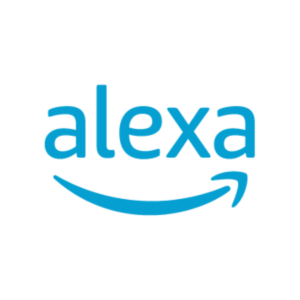
Amazon Alexa – Voice AI for Smart Homes and Entertainment
Try it -

Apple Siri – Intelligent Voice Assistant for Apple Devices
Try it -
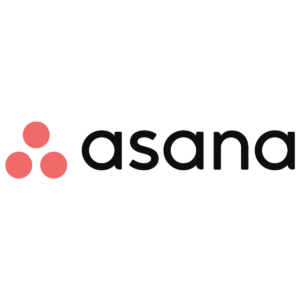
Asana – Work Management Platform with AI Insights
Try it -
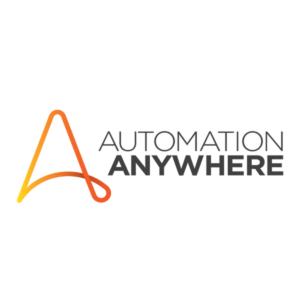
Automation Anywhere – Intelligent RPA & AI Bots
Try it -
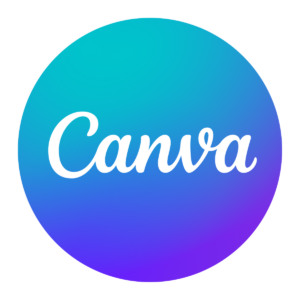
Canva – AI-Assisted Design & Image Creation Platform
Try it -
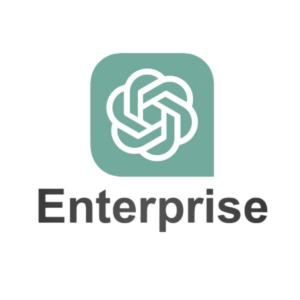
ChatGPT Enterprise – Advanced AI Virtual Assistant for Business
Try it -
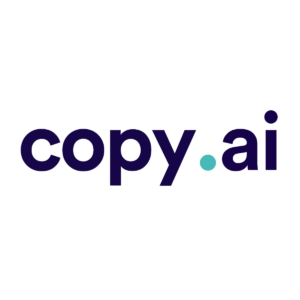
Copy.ai – Automated Copywriting Tool for Marketers & Entrepreneurs
Try it -
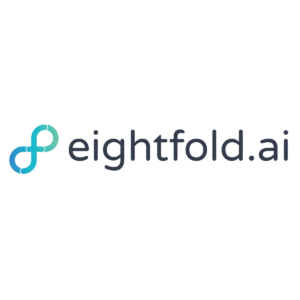
Eightfold AI – AI-Powered Talent Acquisition, Management & Workforce Planning
Try it -
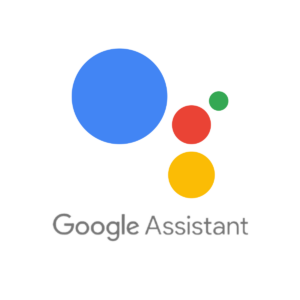
Google Assistant – Voice-Activated Virtual Assistant for All Devices
Try it -
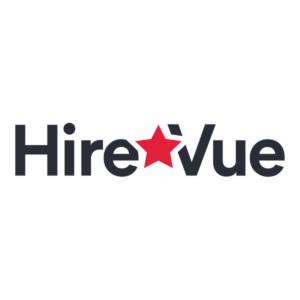
HireVue AI – AI-Powered Video Interviewing & Candidate Assessment
Try it -
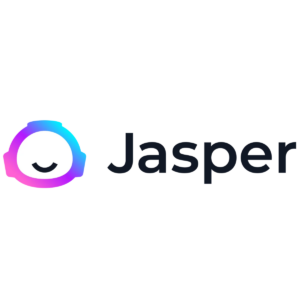
Jasper – AI Copywriting & Content Generation Assistant
Try it -
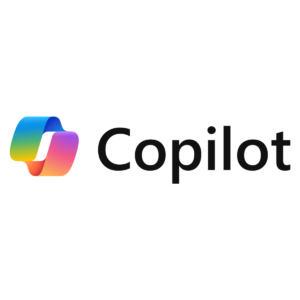
Microsoft Copilot – AI Assistant for Microsoft 365
Use it -
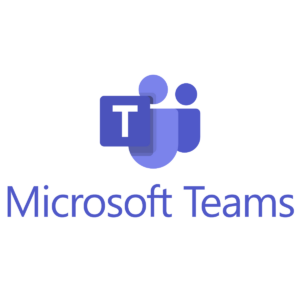
Microsoft Teams – Collaboration & Video Conferencing with AI
Try it -
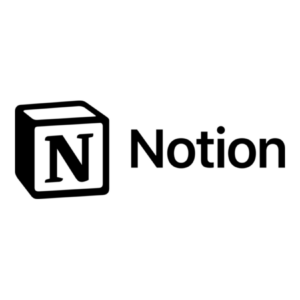
Notion – Team Collaboration & All-in-One Life Organizer
Try it -

Paradox Olivia – AI Recruiting Assistant & Chatbot for Hiring Automation
Try it -
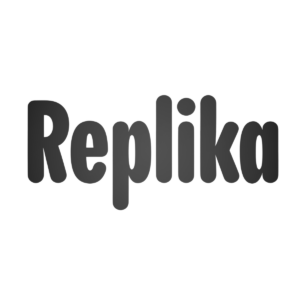
Replika – AI Companion for Emotional Support and Personal Growth
Try it -
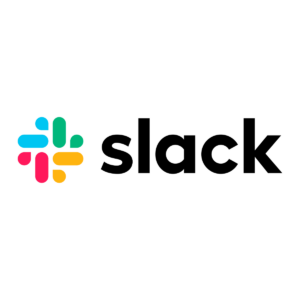
Slack – Real-Time Team Communication & AI-Enhanced Workflows
Try it -
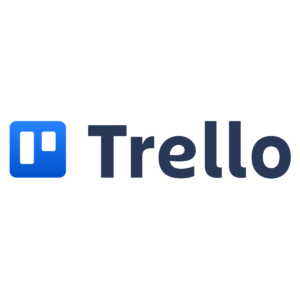
Trello – Visual Project Management & Task Tracking
Try it -
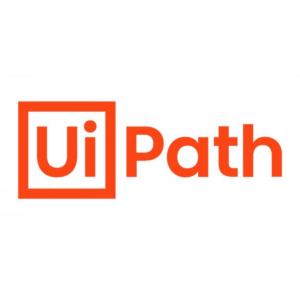
UiPath – Robotic Process Automation (RPA) for Enterprise
Try it -
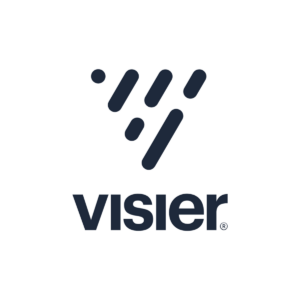
Visier AI – AI-Powered Workforce Analytics & Insights
Try it -
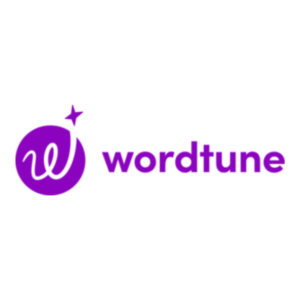
Wordtune – AI Writing Companion for Real-Time Editing & Rewriting
Try it -
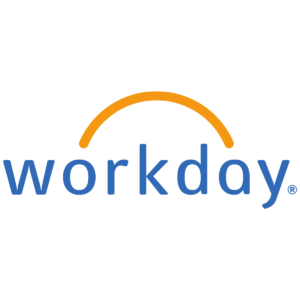
Workday AI – AI-Powered Workforce Management & Analytics
Try it
AI for HR – Smarter Recruitment & Workforce Optimization
Human Resources (HR) is evolving as organizations recognize technology’s critical role in managing talent effectively. Artificial Intelligence (AI) is at the forefront of this evolution, offering transformative solutions that streamline recruitment, optimize employee management, and enhance overall workplace satisfaction.
This comprehensive guide explores how AI reshapes HR, detailing its benefits, key applications, and future trends.
Understanding AI in Human Resources
AI is essential for HR professionals in today’s fast-changing work environment. By automating repetitive tasks and providing data-driven insights, AI helps HR departments make smarter decisions and foster a more engaged workforce.
What is Artificial Intelligence in HR?
Artificial Intelligence for HR refers to applying machine learning, natural language processing, and other AI technologies to automate and enhance various human resource functions. These functions include recruitment, performance management, employee engagement, and training.
AI systems can sift through vast data, predict hiring outcomes, and detect patterns that signal employee satisfaction or turnover risk.
The Importance of AI in HR
Integrating AI into HR processes saves time and enables more accurate, unbiased, and efficient decision-making. The benefits include:
- Faster Recruitment Processes: Streamlining candidate sourcing and screening.
- Enhanced Employee Engagement: Personalizing employee development and retention strategies.
- Optimized Administrative Operations: Automating routine HR tasks to free up time for strategic planning.
- Improved Data-Driven Decisions: Leveraging analytics to forecast workforce trends and address potential issues proactively.
Key Areas Where AI Transforms HR
AI is reshaping human resources by addressing core challenges and enhancing the employee lifecycle. Below, we explore the primary impact areas with introductory insights for each section.
Recruitment and Talent Acquisition
Modern recruitment is about speed, precision, and candidate fit. AI transforms the hiring process by automating repetitive tasks and providing deep insights into candidate potential.
Intelligent Candidate Sourcing and Screening
AI-powered platforms can sift through thousands of resumes, using predictive analytics and natural language processing to identify the best-fit candidates. This reduces the time spent on manual screening and ensures a more objective evaluation process.
Example: Many organizations now use AI tools that integrate with applicant tracking systems (ATS) to automatically rank candidates based on job requirements and historical hiring data.
Enhancing Interview Processes
AI can streamline scheduling and even conduct preliminary interviews through chatbots. Virtual assistants handle initial candidate queries and provide insights to HR professionals, ensuring that only the most promising candidates advance.
Example: AI-driven virtual interview platforms analyze candidate responses and body language, offering insights on candidate suitability before human intervention.
Employee Engagement and Performance Management
Effective employee engagement and performance management are crucial for organizational success. AI helps HR teams monitor employee sentiment and streamline performance evaluations to foster a more motivated workforce.
Real-Time Engagement Monitoring
Using AI analytics, HR can continuously gauge employee engagement levels by analyzing feedback, survey responses, and internal communication patterns. This proactive monitoring helps identify issues before they escalate.
Example: Tools integrating with platforms like Slack or Microsoft Teams can provide real-time sentiment analysis, alerting HR to potential disengagement or dissatisfaction.
Personalized Development and Performance Reviews
AI tailors employee development plans by analyzing performance data and identifying skill gaps. This ensures that each employee receives personalized training and feedback, leading to better career growth and higher retention rates.
Example: Performance management platforms that utilize AI can generate individualized learning paths and suggest targeted training resources based on employee performance metrics.
Administrative Efficiency in HR
Administrative tasks can consume valuable time and resources. AI streamlines these processes, allowing HR professionals to focus on strategic initiatives rather than repetitive paperwork.
Automating Routine HR Tasks
AI-driven automation can handle scheduling interviews, payroll processing, and managing employee records. This not only reduces administrative burdens but also minimizes human errors.
Example: Robotic process automation (RPA) tools in HR help process employee data, update records, and generate routine reports, ensuring accuracy and saving time.
Streamlining Onboarding Processes
A seamless onboarding process is essential for new employee success. AI can personalize onboarding experiences, schedule training sessions, and answer frequently asked questions, ensuring new hires feel welcomed and informed from day one.
Example: AI-enabled onboarding platforms provide interactive guides and chatbots to assist new employees, reducing the workload on HR staff and enhancing the new hire experience.
Recruitment Analytics and Strategic Insights
Data-driven insights are transforming HR into a strategic partner within organizations. AI enables HR to harness data for better decision-making and strategic planning.
Predictive Analytics for Workforce Planning
By analyzing historical data and trends, AI helps HR forecast future staffing needs and identify potential areas for talent development. This foresight enables proactive hiring and better resource allocation.
Example: Predictive analytics tools can forecast turnover rates, helping organizations plan for replacements and design retention strategies accordingly.
Data-Driven Decision Making
AI aggregates and analyzes vast HR data, providing actionable insights that inform policy changes, hiring strategies, and employee development programs. This data-driven approach enhances overall HR strategy.
Example: Dashboards integrating with HR systems can offer real-time insights into employee performance, engagement, and turnover, allowing for informed decision-making.
Case Studies: Successful AI Integration in HR
Real-world examples illustrate the transformative impact of AI on human resources. The following case studies highlight how organizations have successfully integrated AI to enhance recruitment, streamline administrative processes, and boost employee engagement.
Case Study 1: Streamlined Recruitment at TechCo
Challenge: TechCo, a mid-sized tech firm, faced challenges in quickly sifting through a high volume of resumes and identifying the best candidates.
Solution: TechCo implemented an AI-driven recruitment platform that automated resume screening and provided predictive insights on candidate fit.
Result: The recruitment process time was reduced by 40%, and the quality of hires improved significantly, leading to better team performance and lower turnover rates.
Case Study 2: Enhanced Employee Engagement at HealthFirst
Challenge: HealthFirst, a healthcare organization, struggled with low employee engagement and retention rates.
Solution: HealthFirst deployed an AI-powered engagement platform that monitored employee sentiment in real-time and personalized development plans based on performance data.
Result: Employee engagement scores increased by 30%, and turnover rates dropped by 20%, contributing to a more motivated and stable workforce.
Case Study 3: Efficient Onboarding at RetailPro
Challenge: RetailPro, a large retail chain, experienced delays and inconsistencies in its onboarding process for new hires.
Solution: RetailPro introduced an AI-enabled onboarding platform that automated scheduling, provided personalized training modules, and offered real-time assistance to new employees.
Result: Onboarding efficiency improved by 50%, resulting in faster integration of new hires and higher overall employee satisfaction.
Benefits of Integrating AI into HR
Integrating AI into human resources offers numerous advantages that can transform HR functions and drive organizational success. These benefits include:
Enhanced Efficiency
AI automates routine tasks, freeing HR professionals to focus on strategic initiatives such as talent development and organizational planning.
Improved Accuracy
Data-driven AI systems minimize errors in candidate screening, performance evaluation, and administrative tasks, leading to more reliable HR processes.
Cost Savings
Automation reduces the need for manual labour and streamlines operations, resulting in significant cost savings that can be reinvested in employee development and organizational growth.
Better Talent Management
Predictive analytics and personalized development plans help organizations identify high-potential candidates and nurture existing talent, improving workforce performance and retention.
Superior Employee Experience
Personalized engagement and support systems powered by AI enhance employee experience, increasing satisfaction and loyalty.
Challenges and Considerations in AI-Driven HR
While AI offers transformative benefits in HR, organizations must address several challenges to ensure successful implementation:
Data Privacy and Security
Handling sensitive employee data requires strict adherence to data privacy regulations and robust security measures to protect against breaches and unauthorized access.
Ethical AI Usage
Ensuring that AI systems are free from biases and used ethically is critical for maintaining fairness and trust within HR processes.
Integration with Legacy Systems
Integrating AI tools with existing HR systems and legacy software can be complex. Ensuring compatibility is essential for smooth operation.
Skill Gaps and Training
Implementing AI in HR requires specialized skills. Investing in training programs or hiring experts is necessary to maximize the benefits of AI technologies.
Regulatory Compliance
HR-related AI applications must comply with employment laws and data protection regulations. Navigating this regulatory landscape is essential to maintain trust and avoid legal issues.
Future Trends: AI in HR
As technology evolves, AI will continue to transform HR practices. Staying ahead of these trends will enable organizations to maintain a competitive edge and adapt to changing workforce dynamics.
Advanced Personalization
Future AI systems will offer more personalized employee experiences by integrating comprehensive data sets, enabling highly tailored training, performance feedback, and career development plans.
Enhanced Predictive Analytics
AI-driven predictive analytics will provide deeper insights into workforce trends, enabling organizations to forecast turnover, identify skill gaps, and develop proactive retention strategies.
Virtual and Augmented Reality Training
Integrating AI with virtual and augmented reality will create immersive training environments that enhance learning outcomes and employee engagement.
AI for Diversity and Inclusion
AI will play a vital role in promoting diversity and inclusion by removing recruitment bias and providing data-driven insights to foster a more equitable workplace.
Continuous Learning and Development
AI-powered platforms will facilitate continuous learning by offering personalized content and real-time feedback, ensuring employees keep pace with industry developments and skill requirements.
How to Get Started with AI in HR
Embarking on an AI-driven HR transformation requires careful planning and execution. Follow these steps to integrate AI into your HR processes effectively:
Identify Your Needs
Begin by assessing the specific challenges and opportunities within your HR department. Determine which functions—such as recruitment, employee engagement, or administrative tasks—can benefit most from AI integration.
Choose the Right Tools
Explore the AI tools and platforms available in the AI Tools section of Replace Humans. Select solutions aligning with your HR goals, budget, and systems.
Implement and Train
Start with pilot projects to test the effectiveness of AI tools in your HR processes. Provide comprehensive training to your HR team to ensure they can effectively use and interpret AI-driven insights.
Monitor and Optimize
Regularly track the performance of your AI systems through key performance indicators (KPIs) and user feedback. Use this data to optimize your HR processes and continuously improve the employee experience.
Artificial Intelligence is revolutionizing human resources, offering transformative solutions that streamline recruitment, enhance employee engagement, and optimize administrative tasks. By integrating AI-driven tools, HR departments can make data-driven decisions, reduce costs, and create a more dynamic and inclusive workplace.
While successful AI implementation in HR requires careful planning, ethical considerations, and ongoing management, the benefits outweigh the challenges.
